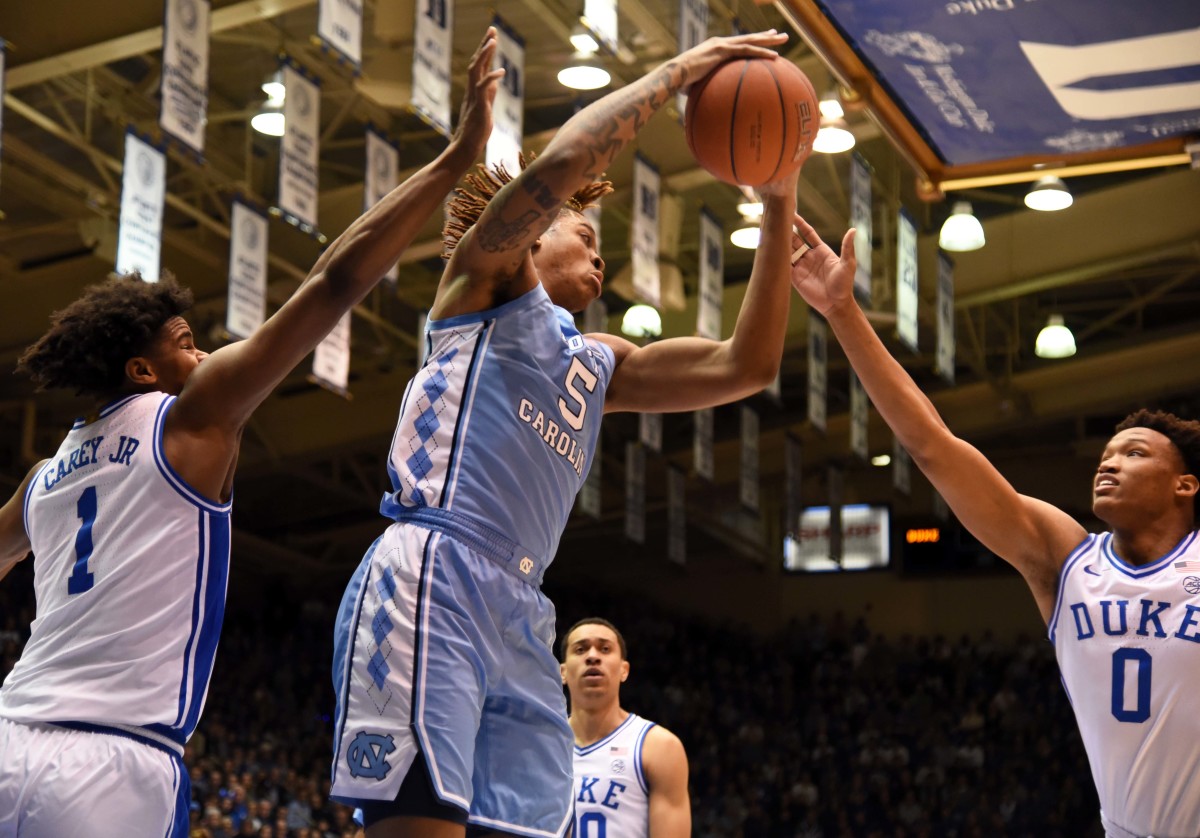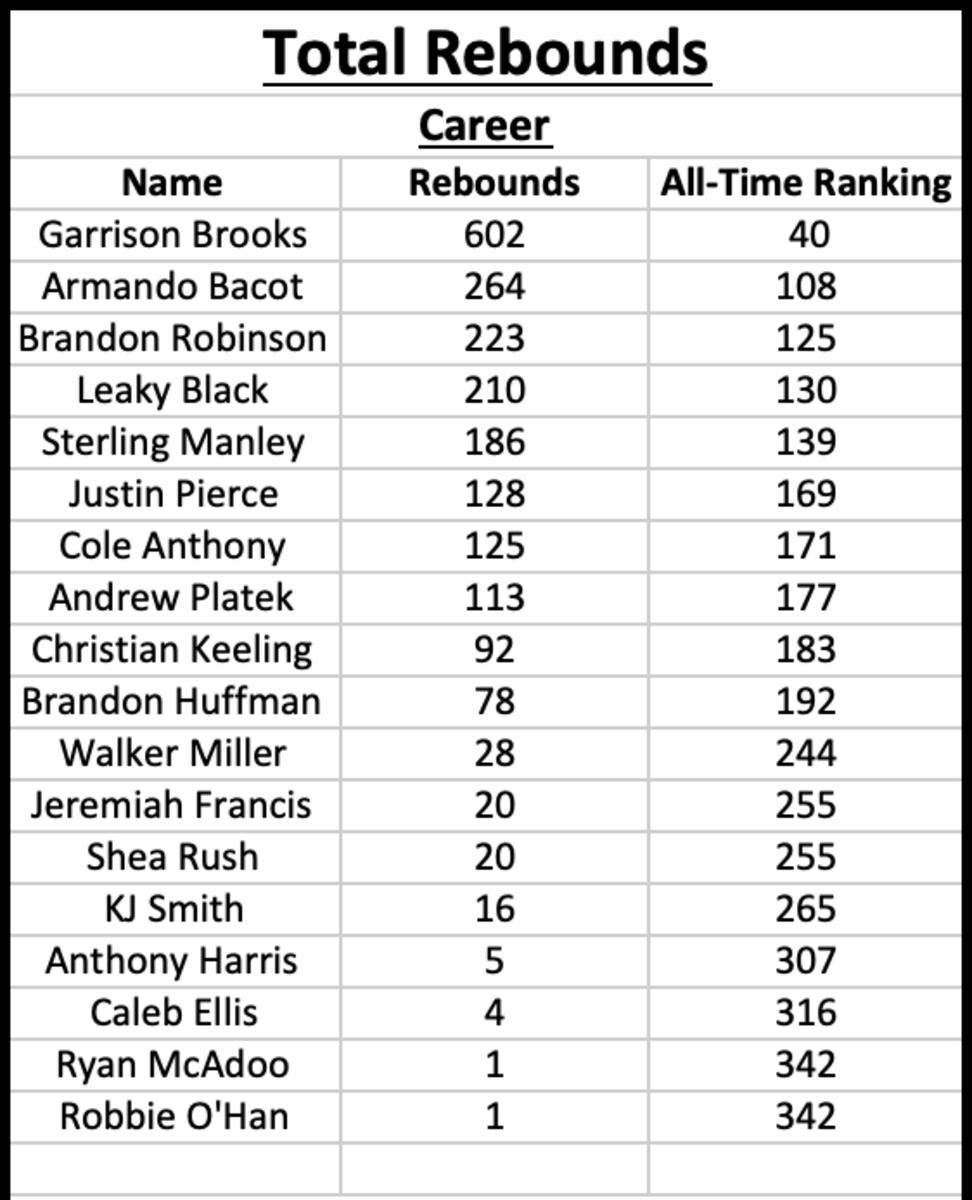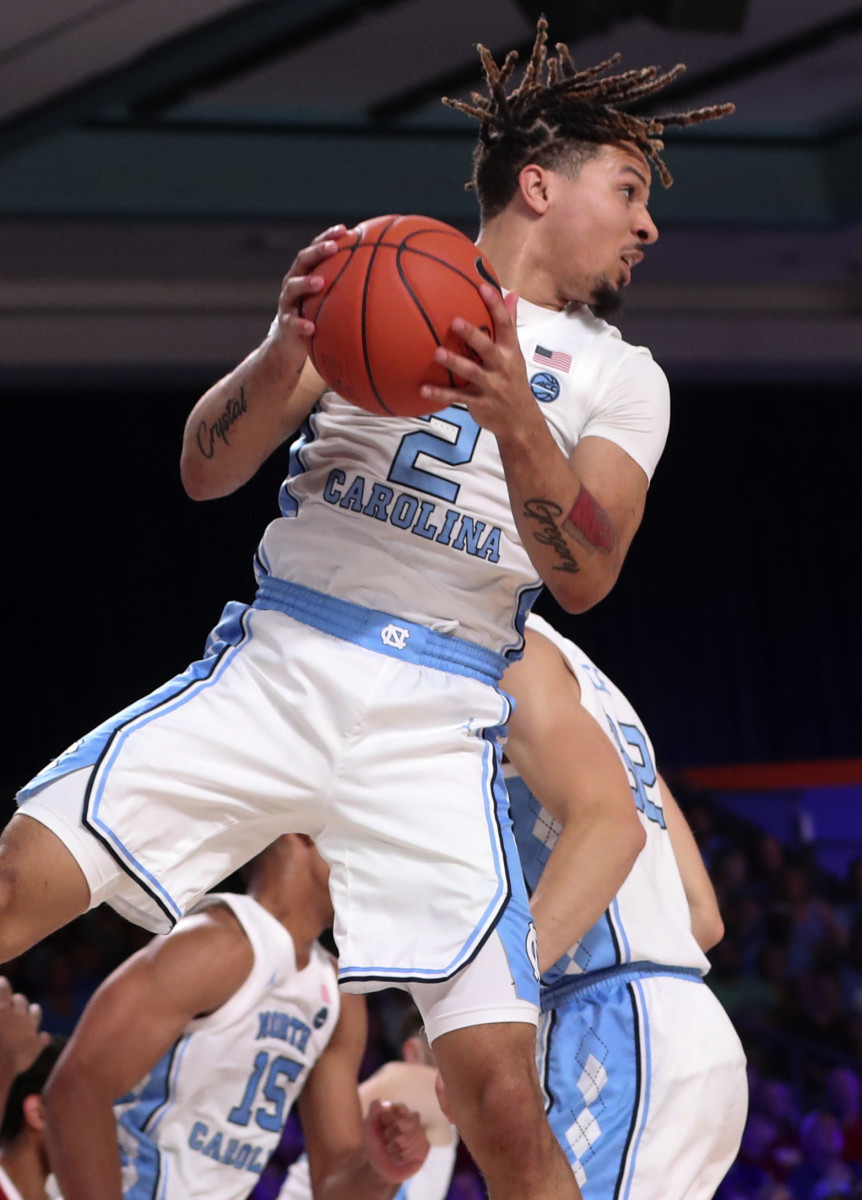UNC Basketball: 2019-20 Career Stats in Review - Rebounds
Through the eyes of much of the college basketball world, Carolina (and specifically Roy Williams) has obstinately held onto the idea of playing a traditional two big-man lineup. In an era when most teams are bombing away from outside, the idea of playing big is considered quaint.
Call Roy Williams stubborn all you want.
Call him old fashioned.
Call him antiquated.
He’ll gladly take your criticism. Why?
Because while your team of shooters could go cold on any given night, rebounding and easy put-backs are both consistent and reliable. Meanwhile, while other teams sacrifice height for shooting, the Tar Heels, who are typically at or near the top of the country in multiple rebounding statistical categories, are further distancing themselves from the pack in terms of rebounding dominance.
What’s the result of Roy Williams-coached teams relentlessly pursuing rebounds on both ends of the court? Three of the top six and four of the top ten players on the career rebounding list are from the Roy Williams era. Seven of the top ten single-season rebound performances in Carolina have been recorded by a player in the Roy Williams era.
With that in mind, let’s take time today to examine the career rebounding numbers of the 2019-20 roster following the season.

Earlier in the summer, I looked at 10 different single season statistical categories from the 2019-20 season and how they compared to previous years. Now it’s time to turn our attention to those same 10 categories in terms of career stats.
Last week we took on career points. As previously mentioned, today is career rebounding.
Below is a chart including each player on the 2019-20 roster, their career rebounding numbers, and their rank on the Carolina career rebounds list:

As the chart shows, Garrison Brooks has 602 career rebounds and sits 40th on the Carolina career rebounding list. If Brooks can put up Brice Johnson-esque senior season rebounding numbers, he will become just the 10th Tar Heel ever to register 1,000 career rebounds. The issue is the potential shortening of the season. The other problem is that Brooks needs 398 rebounds to make 1,000. Only twice in Carolina history has anyone amassed that many rebounds – Tyler Hansbrough (399) in 2007-08 and Brice Johnson (416) in 2015-16. Both of those seasons ended at the Final Four.
In his freshman season, Armando Bacot was a beast on the boards (264; 108th on the list). He had just eight fewer rebounds than Brooks in the 2019-20 season (272-264). Bacot will likely only stay in Chapel Hill one more season before leaving for the NBA. This means he doesn’t have a realistic shot at climbing into the top ten in Carolina career rebounders. However, making the top-50 is incredibly realistic. To do so, he would need 253 rebounds in 2020-21 (fewer than he had in his freshman season) to tie Ed Cota’s 517 rebounds. If Carolina plays a full slate of games, and Bacot stays healthy, it seems extremely likely he will end up in the top 50.
Sterling Manley has 186 career rebounds (139th place) and, if healthy, has the frame to dominate the glass. The question is: will he be healthy enough in the 2020-21 season to do so?
The concern for Brooks, Bacot, Manley, and freshmen Day’Ron Sharpe and Walker Kessler this season, in terms of individual rebounding numbers, will be the crowded frontcourt. From a team perspective, it’s a great problem to have. But by the nature of rotating big men so much to get everyone minutes, the likelihood of one of them having an individually dominant rebounding season is low.
Brandon Robinson finishes his career with 223 total rebounds, good for 125th on the career rebounds list.
Perhaps the biggest key to Carolina’s rebound success next season? Leaky Black. It’s a given that the aforementioned bigs are going to rebound well. With Leaky’s combination of size, length, and frame given his position (typically the two or three), he has an opportunity to clean up on rebounds. In his first two seasons, he has gathered 210 rebounds (161 of which were in the 2019-20 season). Last year, Black averaged 5.0 rebounds a game. If he can continue to grow that average, the result will be a boon for Carolina. Individually, Black should easily crack the top 100 in the coming season. He is currently 130th and needs 75 rebounds next season to tie Dudley Bradley and Dick Grubar for 100th.

I would be remiss not to mention the rebounding prowess of Cole Anthony, the likes of which we’ve never seen from a point guard. He averaged 5.7 rebounds a game for a total of 125 boards (171st all time). Given his average and number of missed games (11), if Anthony had played the entire season he would have pulled in around 63 more rebounds for a total of 188 (139th all-time). 139 might not seem impressive on the surface, but please remember: This is a freshman. This is a point guard. Those sorts of numbers just don’t happen very often.
All-in-all, Carolina certainly had another strong rebounding year, despite the lack of success in the “win” column. There is no reason not to expect the Tar Heels to be right back at the top of the heap again next season.
The next stat category I’ll be reviewing from the end of the 2019-20 season is career assists.
Want to make sure you see the next article in the series?
You can follow us for future coverage by clicking “Follow” on the top right hand corner of the page.
Send Isaac Schade an email to talk more about this article.
Follow us on Twitter: @SI_Heels | @isaacschade
Please post any comments below!
